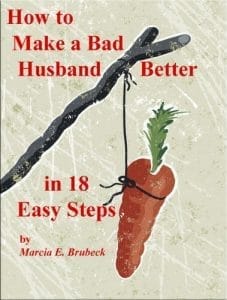
15 Ways to Keep from Feeling Lonely as You Age
When we think about being healthy, mentally and otherwise, we usually think in terms of food, sleep, and exercise. But there are many other components to good health, and one of them is opportunities to socialize. It’s not healthy to be lonely.
The need for connection, for touch, has been established from infancy onward. Without it, infants wither and die, and prisoners in solitary confinement lose their minds. People live shorter lives when they feel isolated.
When one of two partners dies, the other may well follow in a matter of weeks or months, especially if they have been together a long time. You really can die of a broken heart.
Not long ago I read an account of a Midwestern town in which the inhabitants gathered in the evening so that the children could play and the grownups could talk, dance, and sing. This community attracted medical attention because the incidence of chronic illness and heart trouble was far below the norm.
Over a period of years, the town grew and developed. The residents stopped meeting in the evenings. And—are you surprised?—the statistics documenting illness crept up until they were on a par with those elsewhere in the nation.
Many factors in modern life conspire to sever our ties with our families, our communities, and our friends. In today’s world people are highly mobile. Relatively few stay to work as adults in the towns where they grew up.
Some people move many times. After finishing their educations, children often disperse geographically. Parents divorce, remarry, and divorce again. Older women in large numbers are facing the end of life alone.
Changes occur in our social lives occur as we move through the life cycle. When children finish school, their parents no longer need to meet with teachers or to chauffeur their offspring to after-school activities. When older adults retire, they withdraw from the workplace community. For empty nesters and retirees, there are fewer natural opportunities to make new friends.
And so the question arises: how can we combat loneliness as we age? Here are some ideas for you to ponder, and you will surely come up with more.
1. Go back to church. If you are not committed to one church, explore a number of them. Try out different denominations. After the sermon, consider joining the choir, a Bible study group, or special interest groups.
2. Think about moving to a retirement community. If older neighbors are moving off your block, perhaps an over-fifty community would give you a home base where others share your interests, are open to socializing, and are free from the pressures of jobs and childrearing.
3. Take up golf, tennis, racquetball, or swing or ballroom dancing—or go hiking. Such activities will introduce you to other people who like the same things. Exercise keeps your body fit and your mind nimble.
4. Play bridge or mahjongg at your local senior center. Senior centers often have a variety of activities designed to help older adults socialize.
5. Mentor or tutor children. Local schools are often on the lookout for older adults willing to help children learn study skills or just weather the social challenges of the elementary and middle school years. You can also apply to Big Brothers, Big Sisters, which usually has a waiting list of children from single parent homes who would welcome your company and encouragement
6. Volunteer. The opportunities for volunteer activity abound, from local churches to Amnesty International, Habitat for Humanity, soup kitchens, shelters, and organizations to help the homeless or campaign for social services
7. Reconnect with old friends. The alumni offices of your schools can help, as can Facebook.
8. Join a book or garden club or a writing group. In my area the local library is a clearinghouse for information about local groups. Members of one read and discuss each new issue of the New Yorker. In addition to book groups, there are get-togethers for writers of fiction, poetry, screenplays, and memoirs. Look for fan clubs that support your favorite stars and teams (go Women Huskies!).
9. Go back to school. Most towns publish a catalog every season of two- and three-session courses taught by residents and covering hobbies, cooking, and personal growth. These courses are generally known as continuing education. If you have some special expertise, consider teaching a short course to share your passion with others. You can also take courses at a local college or university. In Connecticut, where I live, residents sixty-two and older can take courses tuition free at any state institution of higher learning, even earning a degree. Some universities, such as the University of Hartford, also offer courses specially designed for seniors. The aim is general instruction rather than taking a test and earning a grade. And don’t forget online courses. A great site for online courses is edX.
10. Hit the road. Road Scholar offers short and longer trips locally, nationally, and internationally. There are often cruises and other travel opportunities with local museums and community groups, too, such as National Geographic, the Sierra Club, and the local affiliates of National Public Radio.
11. Become a political activist. Involve yourself in town politics or work for a candidate for state or national office. The local registrar of voters often needs people to staff the polling places during elections.
12. Go to social events at local museums and galleries. These may be openings for art exhibits or just regular social activities, such as concerts and first Friday celebrations. You can also become a docent at a museum or help out with fundraising.
13. Take up photography, filmmaking, drawing, painting, or antique collecting. As you learn more and stock up on supplies, you will meet others who share your interest. Create jewelry or baskets. Or make bread or cakes. Breed Siamese cats, learn to bonsai trees, train a dog, or start an oral history project in your family or town. Study a new language. Out of ideas? Browse through the stacks at your local library for inspiration.
14. Venture online. Create a blog and use it to sell gizmos of your invention—or round up supplies or information related to your interest so that other aficionados can find them in one place. If you sell items or just blog you can attract advertisers as you build your readership.
15. Learn about unretirement, and get yourself an inspiring part-time job. To learn more, read Chris Farrell’s book Unretirement: How Baby Boomers Are Changing the Way We Think About Work, Community, and the Good Life.
Whatever you choose to do, look for variety. You want the opportunity to acquire new skills, to be physically active, and to meet other people. You want to be busy and productive, sharing your hard-earned wisdom and learning about others’ passions.





